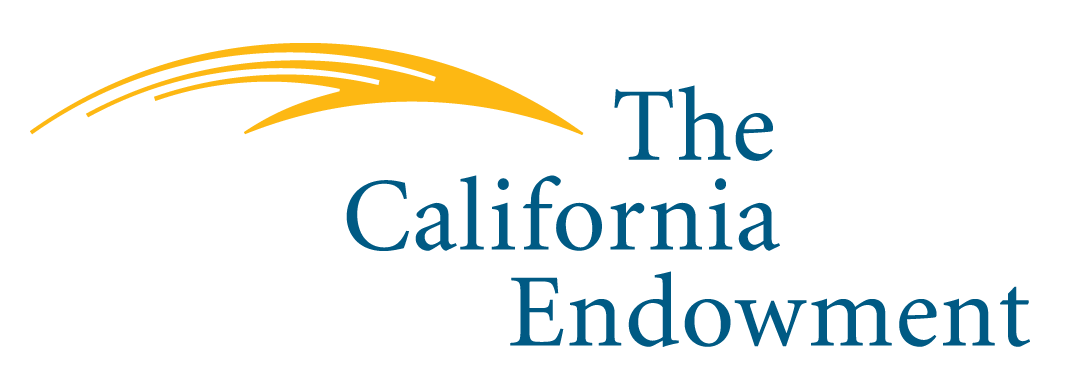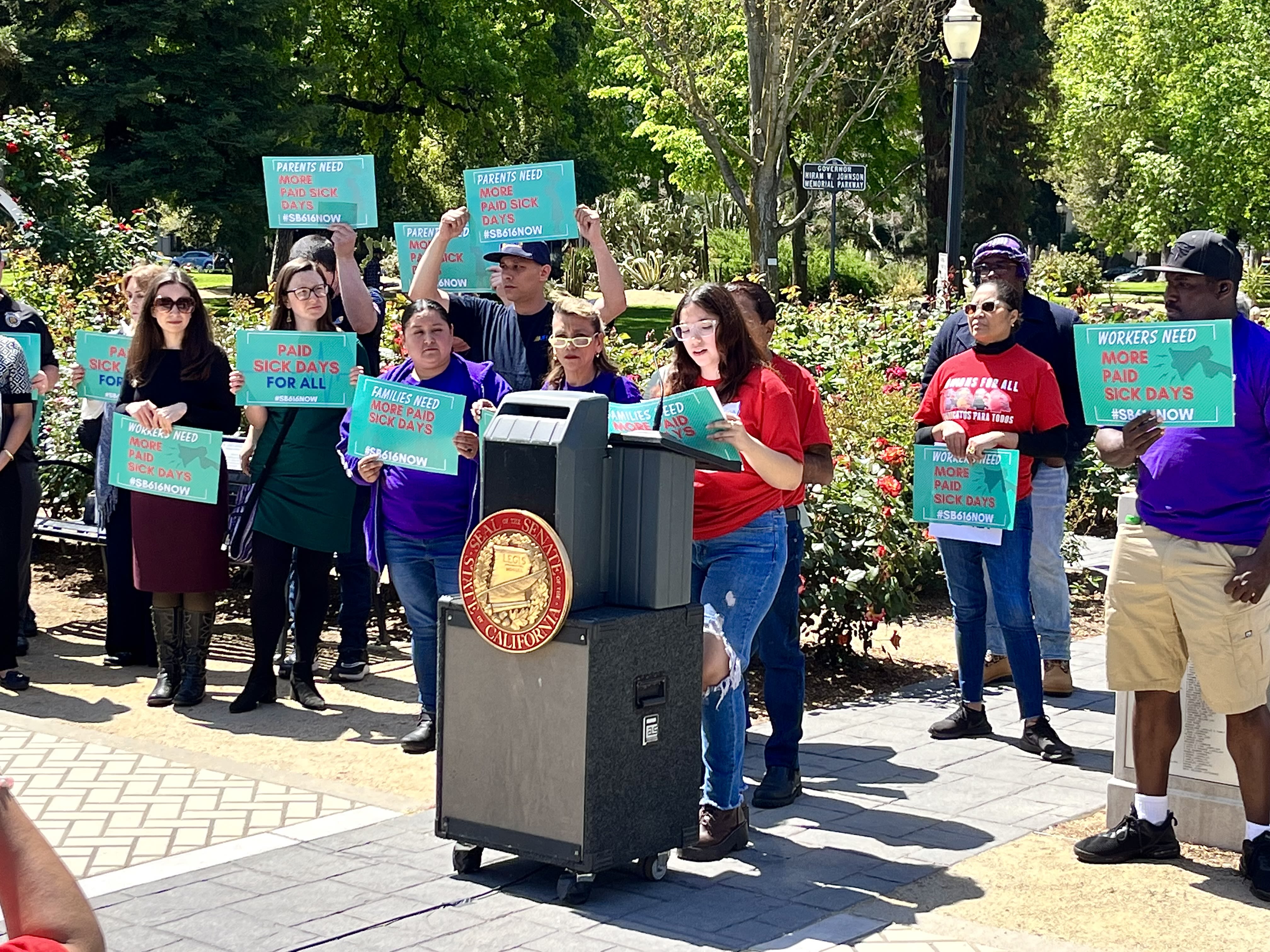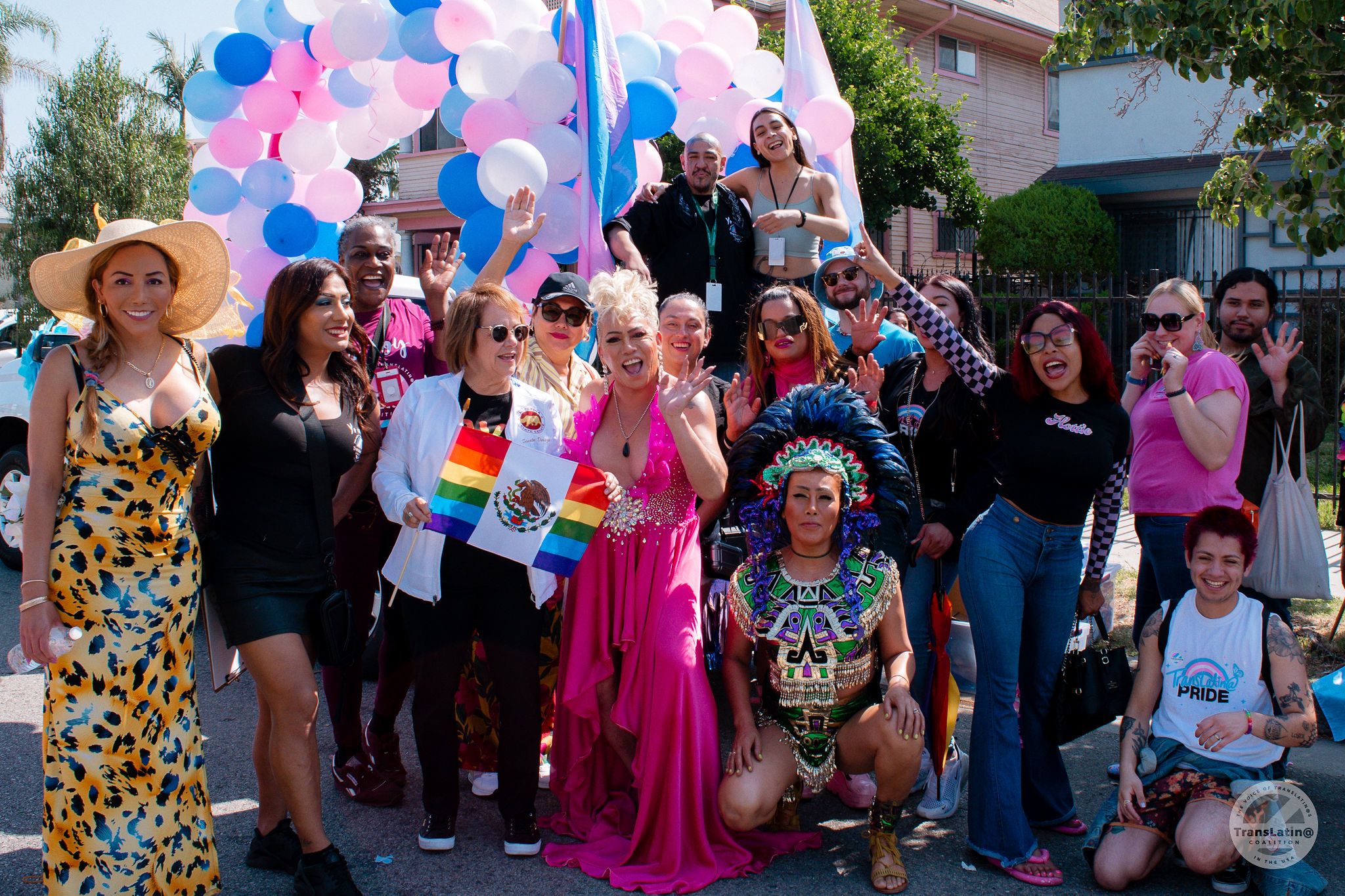California Communities are at the Center of Health Transformation (COPY)
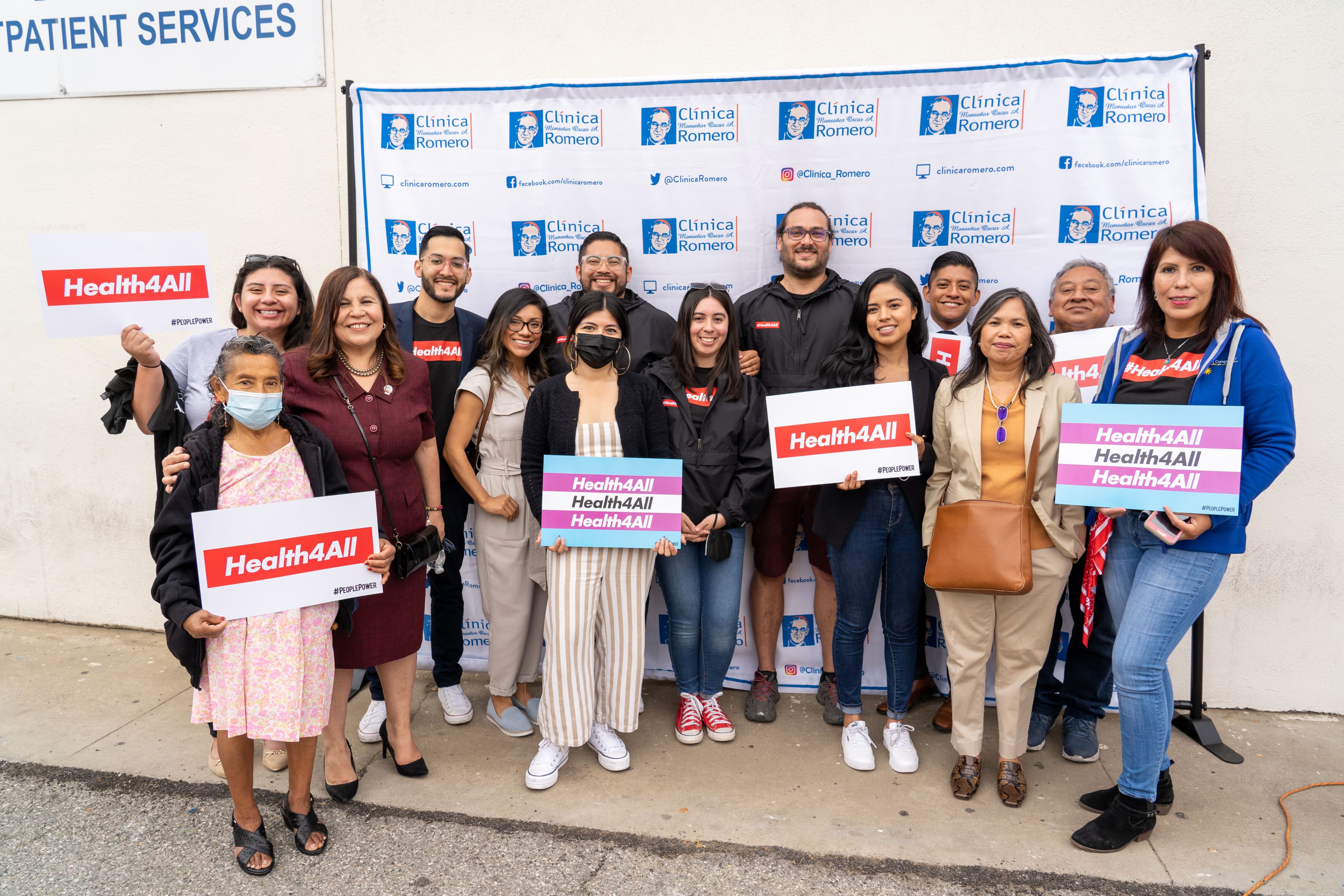
California Communities are at the Center of Health Transformation

"Communities hold the knowledge, the wisdom, and the data we need to implement policy solutions that actually change our systems and our environments for the better…The step that it takes to move from health equality to health equity is to center community."
Californians deserve a state where health equity and racial justice are the standard; a health system that centers community wellness, prioritizes prevention, and provides access to quality health care; and policies and solutions that will undo the reality that a person’s race, geographic location, gender or sexual orientation are barriers to a healthy life and life expectancy.
That is why community organizers across California are working with nurses, doctors, community health workers, outreach staff, and advocates to reimagine and design a 21st Century Health for All system. It starts with a baseline approach that every aspect of our life impacts our health, and communities most impacted by health inequities hold the solutions.
Juliet Sims, director at Prevention Institute, which works with communities, organizations, government, and philanthropy to design comprehensive primary prevention strategies across the country, says, “Community organizing is so critical to improving the health of communities. And what we know through our work in California is that communities who are impacted by the greatest health inequities have the lived experience, knowledge, and leadership to design and advance solutions to create more equitable community conditions and to undo and repair the harm that has been caused from unfair policies and practices.”
Melissa Jones, executive director of Bay Area Regional Health Inequities Initiative, a coalition of community and government public health departments advancing healthy living conditions outside of the doctor’s office, shared how community conditions exacerbate health issues. “We know that in places where opportunity is open, where your whole family budget doesn't have to be dedicated to housing, where you're free to live your life day-to-day without feeling discriminated against, it matters for health. And so, we try to create more and more opportunities for that to be how we all live,” she says.
Photo credit: Steve Landaverde via TransLatin@ Coalition
Photo credit: Steve Landaverde via TransLatin@ Coalition
Community members are central to achieving a more equitable health system, one that is inclusive of those most marginalized, including LGBTQ+ communities of color, who report high rates of discrimination in health care, housing, and education.
Bamby Salcedo, CEO of TransLatin@ Coalition, says, “We need to think about health in a broader aspect and not just health as going to see a doctor or having medical insurance. It really is about recreating the way we think about health and how we foster environments that promote healthy people, and that includes, of course, transgender non-conforming and intersex people.”
Photo credit: Steve Landaverde via TransLatin@ Coalition
Photo credit: Steve Landaverde via TransLatin@ Coalition
The California Endowment’s historic $300 million Social Bond supports grassroots organizers, activists, and advocates to build power and champion movements to reimagine health equity and racial justice for all people in California. To further the impact of the Social Bond, The California Endowment has dedicated a portion of the bond to transforming the health system in California by addressing systemic challenges and inequities, with communities most impacted leading the work. Through the Social Bond, The Endowment aims to move towards a system of prevention and well-being through a community-rooted public health lens, advance and achieve equitable health reforms, and build a diverse and inclusive health workforce.
“The social bond builds on a great deal of existing capacity in California. We have a vibrant ecosystem of grassroots organizations, community-based organizations, statewide advocacy groups, research organizations, policy shops, and funders who have a history of working together to advance health policy changes,” Sims says, “We have the power to shape the narratives and the stories that we tell about why our communities are the way they are.”
Anthony Wright, executive director of Health Access California, a statewide healthcare consumer advocacy coalition, shared a similar sentiment around how the Social Bond’s focus on long-term investment bolsters his organization’s work to fight for quality, affordable healthcare for all Californians. “The Social Bond recognizes that change doesn't happen in one year. Our major policy wins have never taken a year just to pass, and our campaigns that have achieved real change took time. So, we appreciate the foundations that provide multi-year funding,” he says.
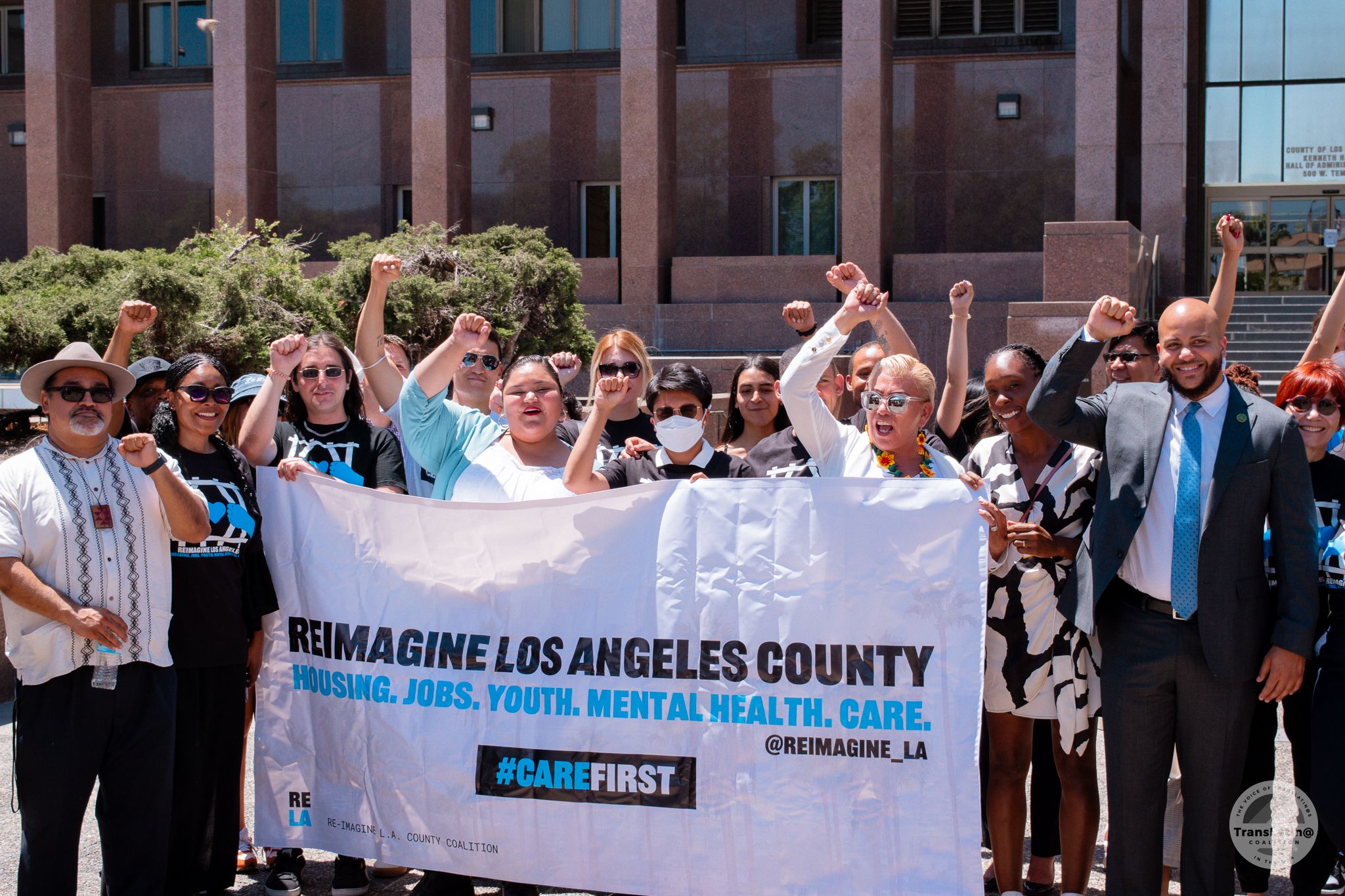
The ongoing devastating impact of the COVID-19 pandemic has shown how crucial it is to significantly invest in California’s health and social service infrastructure. We begin to transform our health systems by centering communities and supporting community-based, community-led efforts. Through long-term investing, we can support community organizing to advance an anti-racist health system, address community conditions that lead to poor health outcomes, and foster robust ecosystems of care and belonging.
The California Endowment is proud to partner with organizations across the state that are creating a transformative path to an equity-focused health system rooted in racial justice and that promotes well-being for all. We invite funders and community members to learn more about our commitment to health equity at calendow.org. Visit our grantee dashboard for a list of our most recent Social Bond investments.
This content was paid for by The California Endowment. The editorial staff at The Chronicle had no role in its preparation. Find out more about paid content.


